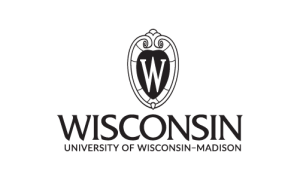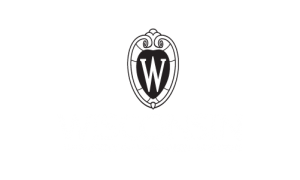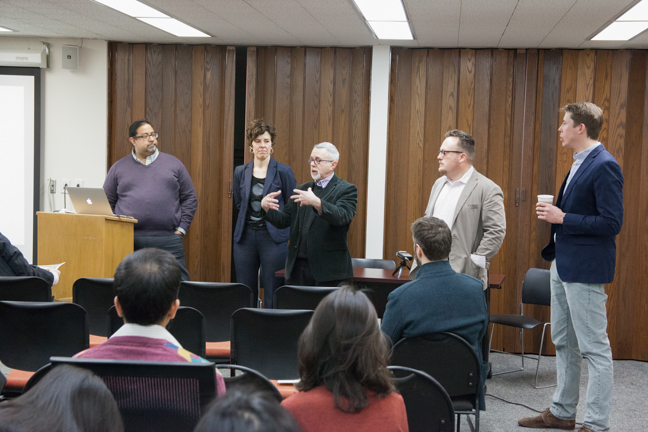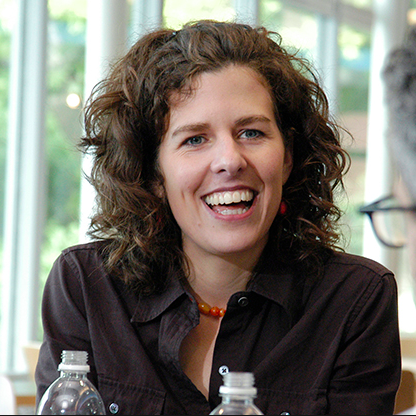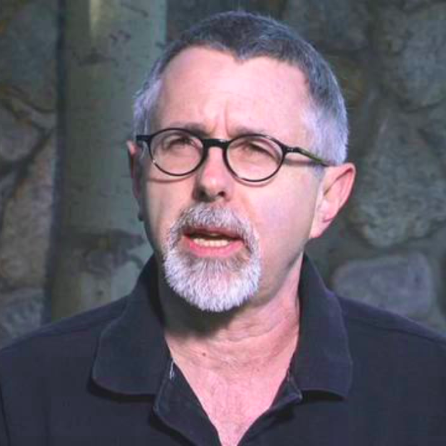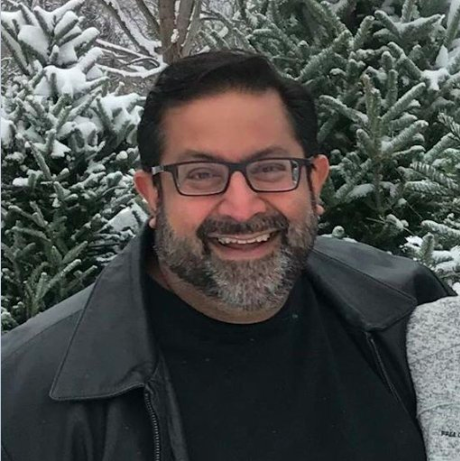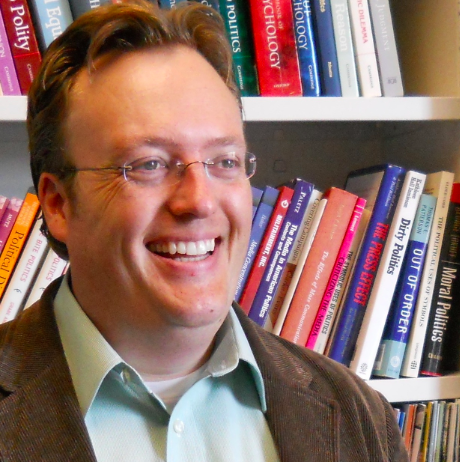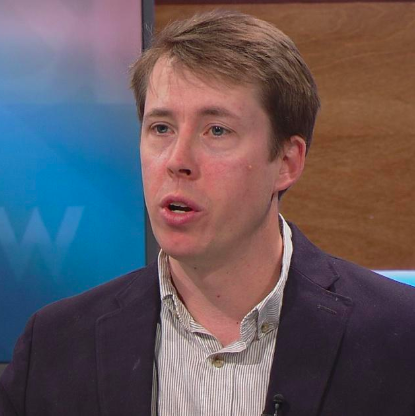Our Research Team has been meeting since 2005 to examine questions of communication and civil society…
Contact Usfocusing on public engagement, political consumerism, contentious politics, and the possibility of civic repair.
Our recent attention has shifted to the politics of resentment and the rise of populism.
In 2016
- Right wing populist movements in Britain, aided by a campaign of misinformation, successfully pushed for Brexit.
- A right wing populist, Donald Trump, won the presidency of the United States, partly by dominating news coverage
Since 2016
- Right wing populist movements consolidated power in Hungary, Poland, Italy, and Brazil.
- Populists won parliamentary seats in Australia, Austria, Denmark, Finland, Germany, and the Netherlands.
In 2018
- Many U.S. states shifted control back to Democrats or moderate Republicans, suggesting a “Blue Wave”
- Left-leaning candidates won governorships in Illinois, Michigan, Kansas, Maine, Wisconsin, and Nevada.
Our Story
It’s rare when we get to bring such an illustrious and diverse group of scholars, and even more rare when they can inform the thinking around an ambitious project at its early stages. That is what this conference did for our work on Wisconsin’s communication ecology and political contention. The almost immediate transfer of knowledge into research efforts fostered a rapid rate of discovery. ~Dhavan Shah
Since 2016, the Communication and Contentious Politics Project has received grants totaling some $683K.
$411,000 from the University of Wisconsin in the WARF Discovery Competition, $150,000 from the Hewlett Foundation, $72,000 from the Tommy Thompson Center, and $50,000 from the Damm Fund of the Journal Foundation to support its study of political contention and communication ecologies in Wisconsin and other states.
Faculty Organizers
Kathy Cramer
Professor Department of Political Science
Katherine Cramer (B.A. University of Wisconsin-Madison 1994, Ph.D. University of Michigan 2000) is a professor in the Department of Political Science.
Lewis Friedland
Distinguished Achievement Professor
Lewis Friedland is Vilas Distinguished Achievement Professor in the School of Journalism and Mass Communication, and affiliated with the Departments of Sociology and Educational Psychology. He directs the Center for Communication and Democracy.
Dhavan Shah
Director of the Mass Communication Research Center
Dhavan V. Shah is the Louis A. & Mary E. Maier-Bascom Professor at the University of Wisconsin, where he is Director of the Mass Communication Research Center (MCRC) and Scientific Director in the Center for Health Enhancement System Studies (CHESS).
Mike Wagner
Associate Professor & Louis A. Maier Faculty Development Fellow
Michael W. Wagner is associate professor and Louis A. Maier Faculty Development Fellow in the University of Wisconsin’s School of Journalism and Mass Communication.
Christopher Wells
Associate Professor
Christopher Wells is Associate Professor in the School of Journalism & Mass Communication and faculty affiliate of the Center for the History of Print and Digital Culture.
Ready to create change with the University of Wisconsin School of Journalism and Mass Communication?
A word from participants
at the #cpcd event…
Grad Students

Aman Abhishek
Doctoral Student in the School of Journalism & Mass Communication
His research interests include media coverage of international affairs and conflicts, social media dynamics, and computational social sciences.
He has been involved in the research being done at the Social Media and Democracy and the Civic Culture and Contentious Politics groups at SJMC, specifically with a focus on social media reaction to gun violence in the United States, and polarization in the context of Wisconsin recall election of 2012.
He has a double masters in physics from University of Wisconsin-Madison and Indian Institute of Technology Roorkee respectively, and a bachelor’s degree in physics from Indian Institute of Technology Roorkee.

Jordan Foley
Doctoral Student in the School of Journalism and Mass Communication
He serves as the Assistant Director of the UW debate team. He earned his M.A. in Communication Studies from Wake Forest University with an emphasis on rhetoric, democratic deliberation, and political communication.
His research interests are motivated by a desire to understand (1) the flow of information within and between media ecologies over time, (2) how that information is framed and processed by individuals and groups, and, ultimately, (3) how these communication flows shape political belief systems and public opinion.
Jordan’s current research projects combine content-coded event data, news coverage, social media response, and thematic discourse analysis to understand the implications of these media ecologies on contentious political topics like presidential debates, mass shootings, and conspiratorial beliefs systems broadly.

Ceri Hughes
PhD Candidate Researching Political Communication
He gained both his undergraduate degree and an MA in Political Communication from Cardiff University, Wales. His work currently focuses on the study of minor political parties and the role that media play in promoting (or not) these alternative views.
He is presently researching the prominence of the United Kingdom Independence Party (UKIP) in the British political communication ecology prior to Brexit, and how the party utilized populist rhetoric. He has published work on newspaper coverage of the UK Green Party and has been undertaking ethnographic field work with the Wisconsin Green Party for the last eighteen months.
A further area of research interest is the role of religious discourse within the political realm.

Meredith Metzler
Ph.D. Candidate in the School of Journalism & Mass Communication
Her research interests include political communication, journalism studies, and media ecology.
Meredith was the lead TA for J202: Mass Communication Practices, a skills-based introductory course, and is the senior editor of Madison Commons. Her master’s is in Media, Culture, and Communication from NYU and her B.A. is from Carleton College in English. Prior to graduate school, Meredith worked in corporate communications.

Jiyoun Suk
Doctoral Student in the School of Journalism and Mass Communication
Her principal research interests lie in media effects and information processing in the context of political communication.
To be specific, she is interested in exploring 1) how the communication ecologies, interacting with individual predispositions, influence the understanding of media and politics, and 2) how online and mobile communication platforms contribute to the political information flows, thus shaping opinions/attitudes.

Jeffrey Tischauser
Ph.D. Candidate in the School of Journalism & Mass Communication
He received his B.A. in History from Eastern Illinois University, in 2004, and an M.A. in Communication from Northeastern Illinois University, in 2008.
Prior to going back to grad school, Jeff worked in Corporate Communications and taught communication courses at community colleges around Chicagoland. His research investigates the relationship between white racial identity, white supremacy, and alternative media, as well as how to use alternative media to challenge systems of oppression.
